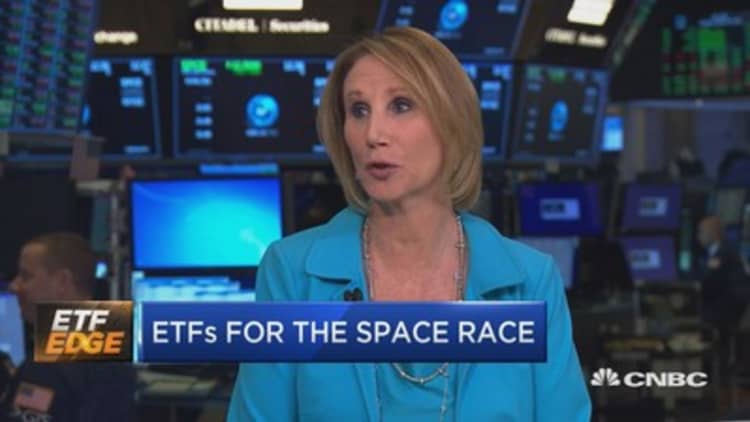
Bonds are under close watch following the Federal Reserve's latest rate cut, its third this year.
But there's a key point about the bond market that investors, particularly those interested in bond-related exchange-traded funds, are missing, says Mary Ann Bartels, head of ETF strategy at Bank of America Merrill Lynch Global Research.
"What's interesting is if you take bond returns on a risk-adjusted basis, they don't look as attractive as equity returns," Bartels said this week on CNBC's "ETF Edge." "That's what we think clients aren't looking at, is their risk-adjusted returns."
Risk-adjusted return refers to the profit made on an investment relative to the amount of troublesome exposure that investment has faced over a given period of time.
And, according to Bartels' analysis, bond investments as tracked in ETFs like the iShares 20+ Year Treasury Bond ETF (TLT) and the iShares iBoxx $ High Yield Corporate Bond ETF (HYG) have largely yielded lower risk-adjusted returns than equity investments.
Even so, "we're still bullish on high yield, especially because we think we're going to stay in a low-rate environment," Bartels said. "We're not moving towards a recession, so we're willing to take the credit risk to go into high yield."
They're not the only ones. HYG, the SPDR Bloomberg Barclays High Yield Bond ETF (JNK) and the Vanguard High Dividend Yield Index Fund ETF Shares (VYM) are all heavily traded high-yielding names in the fixed-income ETF market, which hit $1 trillion in assets this summer.
"There's still a lot of fear and a lot of caution in the marketplace," Bartels said. "We also do the global fund manager survey, and this is really looking at professional fund managers on a global scale. And they're very defensively positioned, which is amazing, that markets are hitting all-time highs and the market all year has had a very defensive position."
Tim Seymour, founder and chief investment officer at Seymour Asset Management, said the market's defensive stance could even be an opportunity for ETF issuers looking to capitalize on investors' concerns.
"It's been the pain trade, and, obviously, we've had a question about the global growth environment, which has made it very comfortable for people to fly into fixed-income instruments," he said in the same "ETF Edge" interview. "It makes it so ... that the ETFs around that community do need to have greater access points for people to be investing in munis [municipal bonds] and triple-A credits that actually could be more defensive."
But high-yield investments still carry a good deal of risk, said Seymour, who also appears regularly as a trader on CNBC's "Fast Money."
"I'll tell you what: The JNK and the HYG, if we start to see any questions about the economy, liquidity dries up very quickly in high yield and I think they will move to the downside," he warned.
HYG and JNK were both down slightly following Wednesday's Fed decision. VYM was up less than 1%. TLT was up over 1%.
Correction: An earlier version gave an incorrect day for when Bartels was interviewed on "ETF Edge."






